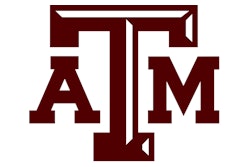Copyright 2018 The Florida Times-Union
Florida Times-Union (Jacksonville)
From his position behind home plate, umpire Kody O'Connor watched a young base runner trip and fall into the catcher, sending both boys tumbling. He saw it as an unintentional, rookie mistake for a 10-year-old baseball player still learning the game.
But the catcher's coach saw it differently, screaming expletives at O'Connor and demanding that the runner be ejected from the game, O'Connor recalled.
While clashing on a call is as old as sports, O'Connor and others who work in youth sports say they've seen a recent deterioration of the treatment of officials, who are often teens or young adults themselves. Abuse by parents and coaches alike has led in part to a shortage of referees and umpires in youth and high school leagues across the country. The shortage spans all sports and competitive levels, local league representatives say, and has organizers scrambling to staff games.
"Everything a referee or umpire does is in judgment," said O'Connor, 30, who owns Right Call Athletics, which staffs officials for various sports leagues throughout the Chicago area. "High school and college kids don't want to stand there and take the abuse."
O'Connor, of Harwood Heights, Ill., has been an umpire since he was a teenager and later started his business. He once had to call police after a game when parents and coaches threatened him with baseball bats over a call, said O'Connor, who added that it's getting more difficult to staff games.
Experts say the increasingly aggressive nature of parents represents a general shift in youth sports culture. Once centered around play and fun, sports leagues now are highly competitive and can cost parents thousands of dollars a season, monopolizing weekends spent traveling to games.
"I think if you examine where we were at maybe 10 to 15 years ago, compared to where we are now, things have gotten demonstratively worse," said Bruce Svare, a psychology professor at State University of New York at Albany and author of "Reforming Sports Before the Clock Runs Out."
This evolution in youth sports has caused fewer young officials to be drawn to the job simply for their love of the game, said Barry Mano, founder of the National Association of Sports Officials. After dealing with the wrath of angry parents for a season or two, young officials often ask themselves: " 'Do I really want to go out there and suffer this scrutiny? '"
"This is a real challenge," said Mano, who has heard many tales of mistreatment, and even assault, from the organization's 27,000 members. Young officials tend to leave the job early, and veterans working for little to no pay give up their hobby after one too many scuffles on the field, he said.
"It takes a very strong person to be a sports official," he said. "People that stay in this undertaking for a long time are those types of people."
In part, Mano believes social media is to blame. Parents will pick up their phones and take a video, he said. If they don't like the call, they'll post it to YouTube or other sites, chastising the official, Mano said. This adds to officials' angst, making the job even less appealing.
The Wisconsin-based organization does not track assaults, but Mano said he believes they're increasing, and the overall problem is worse than ever.
Mano said the organization's members report one of the top reasons they leave the profession is "bad behavior" by spectators. And a survey by the group last year showed nearly 87 percent of officials experienced verbal abuse, and most believed they were treated unfairly by both coaches and spectators.
This has led to a change in officiating, Mano said. "You don't stand up with arms crossed. We're learning … how to diffuse situations, how to use the proper language."
Parents need to view childhood sports differently, Svare said. Instead of pouring so much time and money into them, which drives competitiveness, sports should be low-pressure at younger ages. "Youth sports aren't about building better athletes and winning games," he said. "It's about building better people."
There's a conflict between what parents want and what their kids want, Svare said.
"Adults want to win; they want scholarships for their kids. Sometimes it's about living out a misspent youth or sports career of their own," he said. "It shouldn't be about them at all. It's about kids and whether or not they are deriving enjoyment in what they're doing."
Part of the solution involves league organizers making clear they will not tolerate outbursts from parents and other spectators, including toward officials, Svare said. Several area leagues already address sportsmanship and behavior in their bylaws, and some even post signs at fields that address behavior.
To address the referee shortage, the National Federation of State High School Associations launched the Become an Official campaign last year, providing recruitment materials to its members, including the Illinois High School Association.
Mark Koski, chief executive officer of the Indianapolis-based organization's national organization, said the first year of the campaign, which was geared toward college students, resulted in the recruitment of nearly 800 new officials. Next year the campaign will focus on reaching retired law enforcement officers, who often are drawn to the job, Koski said.
IHSA Executive Director Sam Knox said the campaign and other recruitment efforts are working, but there's still a need for officials across all high school sports. There are 12,310 licensed officials in the IHSA, about 2,000 less than the association could call on during the 2010-11 school year, he said.
Fewer available officials has also led local leagues to change their approach.
Naperville Little League Baseball started training and paying high school students to be umpires to supplement the number of adult umpires, who are unpaid volunteers, said umpire director Jim Meurer. The lack of pay combined with poor treatment led many adult umpires to leave, and now only four adult officials remain in the league, he said. Turnover of younger officials also has increased, Meurer said.
"Think about a 16-year-old kid standing next to a 35- or 40-year-old man who is probably three heads above him," he said. "There's intimidation."
Clark Brisson, director of coaching for Chicago Fire Juniors City, said the club soccer organization has adjusted referee staffing. Teams with younger players now play games with fewer referees, he said, and the league is considering having players double as referees for other teams.
Ryan Chmura, 29, of Chicago, owns Skyline Athletes, a company that contracts with suburban park districts to run various sports, including staffing the officials. He said he's also had trouble filling slots, which does not surprise him given his own experiences as a soccer referee.
At a game Chmura was officiating when he was 19 years old, a player's father charged at him after he issued a yellow card to the man's son. Chmura said he "just stood there and I froze because I didn't know what to do." The other referee and parents held the man back and called park security.
Eventually, Chmura said, he stopped refereeing because "it just became too stressful. No matter what call I made, I would have parents yelling, screaming. And this could be for (games with) 6- and 7-year-olds."
Read More of Today's AB Headlines
Subscribe to Our Daily E-Newsletter
Terms and Conditions Privacy Policy































